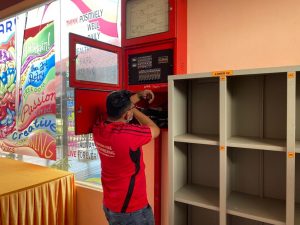Top 5 Do’s When Repair Fire Panel

- Do put the system “in test” (if you have fire panel monitoring).
If your system is being monitored (i.e., has an emergency response set up if the panel activates), you will need to contact your ARC (Panel Receiving Centre) to notify them that you will be carrying out this test, so they know to put the system “on test” and then to take it “off test” following. (People usually call and just give a time frame of, say, 15 minutes so that it will give you enough time to carry it out before it automatically goes into panel mode again.)
You will then want to request a report from your ARC to make sure they received the signal, proving that the connection between the panel system and them is still operational. If it is not, there’s a problem and your fire panel company (i.e., us!) will need to be contacted so they can diagnose the problem and resolve it.
- Do check that the panel has registered the correct zone.
Each manual call point (MCP) you evaluate will be registered to a specific zone in your building. (Next to your fire panel panel should be a Zone Chart which is a floor plan of your building with all of the zones colour coded and labelled so you know which zone relates to which area.)
So, when doing your fire panel testing, after you’ve triggered an MCP and go to the panel to silence the alarm, you’ll want to first check that the screen on the panel displays the correct zone. E.g., if you triggered an MCP by the Entrance, Zone 1, the panel should say this (it’ll usually have wording coded to match so it’s easily decipherable).
If it doesn’t display the correct zone, then there’s clearly an issue there which you’ll need to notify your fire panel company about.
- Do keep a record of weekly testing in your log book.
If you ever have a spot check from the Fire Brigade, one of the things they will look at is your log book to see the evidence of weekly testing.
If you have gone to lengths to make sure you conduct your weekly testing every week but don’t record it, you’re in breach of legal compliance as there’s nothing to demonstrate you’ve actually done it. It’s important to do this to cover yourself but also to see where you’ve left off, so you don’t just keep testing the same MCP (we’ll explain further down why it’s important to test a different manual call point each time).
You should have been given a logbook by your fire panel maintenance provider.
- Do conduct your weekly testing during normal working hours.
Your weekly testing must be conducted during normal working hours. We’ve often been asked how to minimise disruption, either by carrying the fire panel testing out out-of-hours or by turning off the sounders (so no one hears it) but this completely defeats the purpose of doing it!
Your fire panel is designed to disrupt. The reason why we in the fire industry recommend testing at the same time on the same day each week, during working hours, is so that the building occupants know to expect it at this time and become accustomed to what their fire panel sounds like. So, if the fire panel sounds outside of this time-frame, they know it’s not a test but potentially a real fire, and it’s time to get out.
- Do report any issues to your fire panel maintenance provider.
It’s been mentioned throughout so far but it definitely is worth reiterating that if a fault shows up or something’s not quite right, such as people not hearing the panel when they should, you need to report it. This weekly testing is essentially a health check of your fire panel system, so if you do it but then ignore potential issues, this could have a detrimental effect on the efficiency of your fire alarm.
Similarly, if you need help or have a question, it’s better to ask than feel like it’s a bother. It’s your life safety system, after all!
For more information on Safety Training do click this link to MASMA Safety or click here for more information. Do not hesitate to call us at 019-2000643. MASMA Fire Engineering – Your Trusted Fire Contractor.
